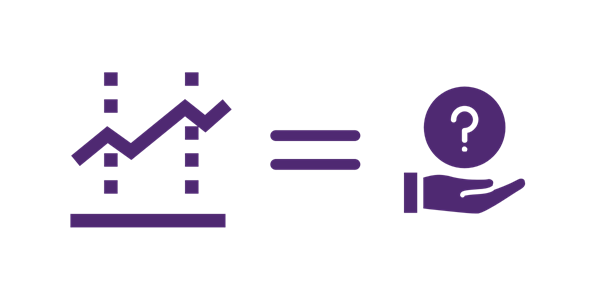Making a living from Forex trading is challenging
When people hear Forex success stories from their friends or family members or read them on the Internet, they usually get the impression that trading FX for a living is very easy and doesn’t require much knowledge or experience. They tend to believe that it doesn’t take much effort or financial commitment to start Forex trading as a full-time job.
But oftentimes, the reality behind such stories is less exciting. Sure, buying currencies at one point of time and selling them at another while getting large payouts might seem easy, but it most certainly is not. There are so many factors to consider before one becomes a successful Forex trader and starts generating sufficient income from it.
Now, it’s not to say that trading Forex for a living is impossible; it is certainly attainable, but it usually requires getting knowledge and experience, as well as opening huge accounts with hundreds of thousands of dollars in size.

Popular misconceptions about trading FX for a living
Before we get into what it takes to become a successful full-time Forex trader, it’s worth taking a look at some of the common misconceptions behind the Forex failure stories because, again, these are the expectations that many people have when wondering if anyone can trade Forex for a living. Here are some of the most popular mistakes new traders make:
- They believe success will come to them even if they have no experience;
- They think the payout they’ll get at the initial stage will be sufficient for their expenses;
- They fail to recognize the fact even if they have the experience, Forex trading is still risky and when someone succeeds, others usually fail;
and in general:
- They don’t have experience/knowledge;
- They don’t have realistic expectations.
Success doesn’t come knocking on your door
The first misconception is associated with the above-mentioned success stories that people hear. But what they fail to realize is that those successful Forex traders have also been beginners at some point and that they have made mistakes - and likely a lot of them.

And believing in sudden success usually has a bad effect when people start trading Forex for a living. Either they make a deposit of a couple-hundred dollars and expect to get a fortune out of it, or deposit thousands of dollars and lose it shortly afterward.
Smaller positions don’t bring large payouts
Another misconception that we mentioned earlier is the belief that traders can turn Forex trading into a full-time job right away. But the reality is different. In the initial stages of trading, people tend to get smaller payouts.
And what is more, if they want to actually make a career in Forex, they usually take a very small amount of that payout for everyday expenses. This means that when they suddenly switch from full-time jobs to full-time Forex trading, they can find themselves in an unfavorable financial situation.
Even experienced traders can lose
This next mistake is associated with the safety of Forex trading. Many beginners think that if they acquire enough knowledge and experience, the risks will suddenly disappear.
But with that belief, it becomes easy to make bad financial decisions. For example, a relatively experienced trader who thinks that their knowledge won’t allow them to make mistakes, might put large funds into trading and with a sudden change in currency prices, lose most of their account balance.
Recommended reading for Forex traders considering going full-time
For traders that are considering going full-time, reading up on some notable works based on day-trading and full-time trading can go a long way in creating a solid basis on which to build upon.
One such book that is highly recommended for full-time Forex traders is Dr Alexander Elder’s book “Trading for a Living”, which touches upon the many aspects of full-time trading, what to look out for, how to structure your trades and, most importantly, how to keep a leveled head while trading.
In the book, Dr Elder discusses the importance of trading psychology, technical analysis, and system development in order to make the daily trading experience more manageable.
Some of the key points discussed in the book include:
- How to manage emotions on the success of trades and effects on decision making
- The concept of “Triple Screen”, which involves analyzing trades through multiple screens or filters, such as trend-following indicators, oscillators, volume indicators and timeframes
- The importance of risk management by placing stop-losses and managing position sizes effectively
- Technical analysis, chart patterns and indicators and how to use them to make informed decisions
- A range of practical examples to illustrate the theoretical concepts laid out in the book
- A holistic approach that unites the different psychological and technical factors that affect the success of traders
Additionally, the book emphasizes the importance of self-discipline, emotional control, and a well-defined trading plan. It is often argued that the mental part of trading is half the work to achieve success and the book certainly reinforces this notion.
The importance of clear expectations and risk tolerance also cannot be understated and give traders the ability to take a moment and review their prior performance to evaluate their results and identify possible weak points in their strategies.
How much capital do you need to trade Forex for a living?
So, these common mistakes and misconceptions are making it hard for beginner traders to actually switch to full-time Forex trading. But it doesn’t necessarily mean that one cannot avoid them and become a professional Forex trader in the future. This next section will cover the most popular suggestions that successful full-time traders offer beginners.
Taking baby steps and not expecting instant payouts
First things first, traders at the beginning of their careers tend to take things slowly and learn new trading skills along the way. This means they’re reading books and guides, watching educational videos that explain how Forex trading works and how to improve your chances of success.
Gaining knowledge from experienced professionals can help traders have realistic expectations when it comes to trading and the possible revenue they can generate from it.

Combining Forex trading with an existing full-time job
Beginner traders tend to ask: “Can you really trade Forex for a living?”- While in the initial stages, the answer to that question is likely to be negative Some traders try to combine Forex trading with their existing jobs. This way, they get the idea about how easy it is for them to actually trade and get real payouts. And their jobs are still there to provide financial stability while they test themselves in the new field.
Now, this combination of Forex trading and a full-time job depends on many things. For example, if you don’t have sufficient experience in trading, it might be a good idea to use all the spare time that you have for Forex while still maintaining a full-time job. As you notice improvements in your trading returns, you can choose the right balance between your full-time job and Forex trading. For instance, you could allocate 90% of your available time for work and the remaining to Forex until you feel comfortable enough to shift your focus more towards trading.
Gradually increase the budget
One of the main points that is very important to keep in mind is that when trading Forex, the majority of funds on the account stay there. Usually, a trader can withdraw 1% to 3% of their funds from their accounts for everyday expenses. The rest of it is used to buy and sell currency pairs.
So, this means that the initial stages don’t usually allow Forex traders to support themselves financially. That’s because to trade Forex for a living, smaller deposits and position sizes are almost never sufficient. That’s why it is usually a good idea to maintain the existing job and gradually switch from it to Forex.